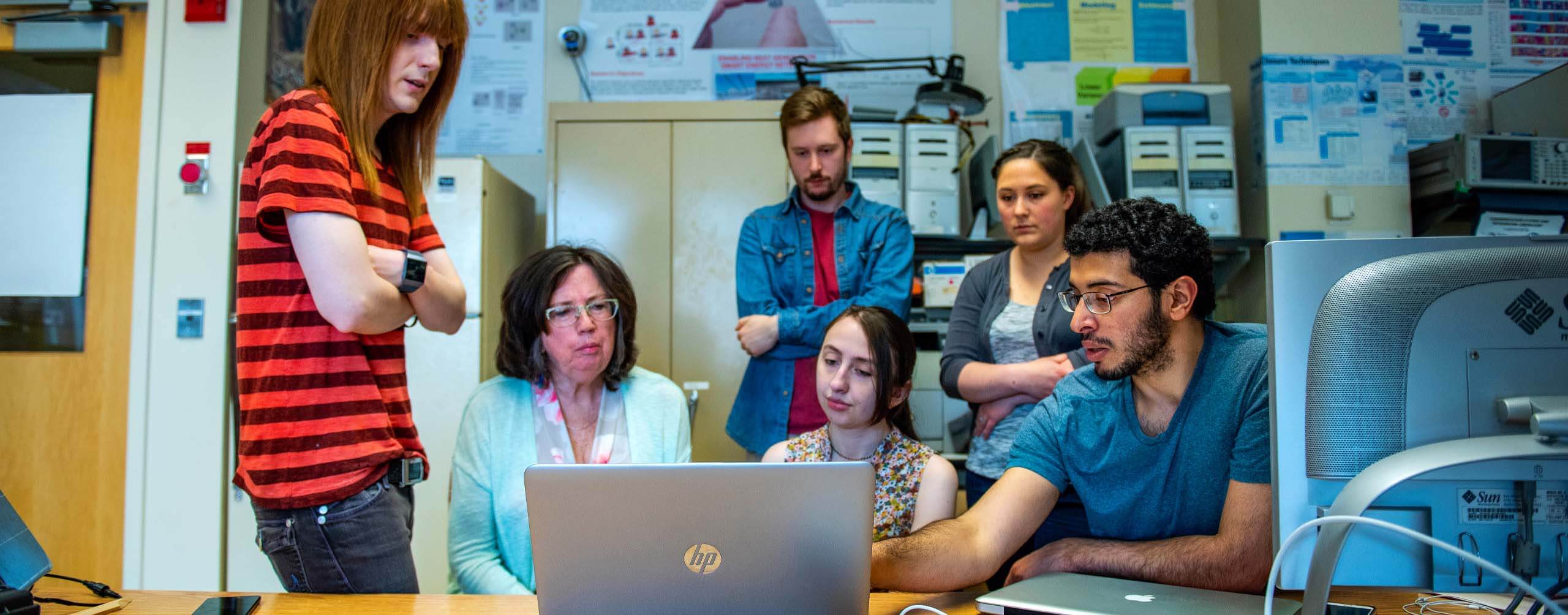
Psychology
College of Liberal Arts and Sciences
Psychology majors develop a scientific understanding of behavior by exploring the wide range of factors that shape it — from molecules to the brain as a whole, from sensory input to reasoning, and from genetics to social and cultural influences.
UMaine’s psychology major is designed to build a solid scientific understanding of the core areas of psychology (clinical, cognition, developmental, physiological and social) while also requiring students to build a deeper understanding in an area of concentration. Outside the classroom, psychology majors gain valuable (and credit-earning) experiences in both on- and off-campus settings, including faculty research laboratories or field learning at local human service and mental health facilities.
The University of Maine’s psychology major is designed to foster a scientific understanding of behavior by exploring the wide range of factors that shape it — from molecules to the brain as a whole, from sensory input to reasoning, and from genetics to social and cultural influences. Students explore how behavior develops from infancy to old age and what it means for a behavior to be considered pathological.
Although psychology is broad in scope, UMaine’s psychology major is focused on developing rigorous scientific reasoning skills (methodological, statistical and logical argument), forming an exceptional foundation for critical thinking across disciplines. To further foster critical thinking and communication skills, the psychology major culminates in a capstone experience in which students apply, integrate and extend the base of knowledge they acquired to a specific topic of interest.
UMaine’s psychology major and minor prepare students for a wide range of professional and educational opportunities. Graduates enroll in a variety of graduate and professional programs, including medical, dental, and law school. They pursue graduate programs in psychology, social work, counseling, neuroscience, forensic science, political science, occupational therapy, and criminal justice. Our graduates enter the workforce as case workers, educators and managers in human services. Others work as laboratory/research technicians, teacher/child care workers, and more.
Thane Fremouw
Chair
Williams Hall, Room 301
207.581.2033 | thane.fremouw@maine.edu
Benjamin Guenther
Undergraduate Coordinator
Williams Hall, Room 356
207.581.2025 | benjamin.guenther@maine.edu
Psychology
College of Liberal Arts and Sciences
Williams Hall
207.581.2030
Specialized Research Facilities
Specialized Research Facilities offer state-of-the-art hands-on instruction and mentoring opportunities. Multiple social psychology suites provide the capability to measure psychological and physiological responses to social situations, facilities to record and assess peer-to-peer interactions, facilities for cognitive and neurophysiological assessment of both normal and clinical populations, facilities for investigating neurocomputational models of cognition, and facilities for neurophysiological, immunohistochemical and behavioral assessment of laboratory animals.
